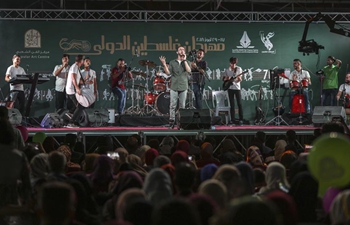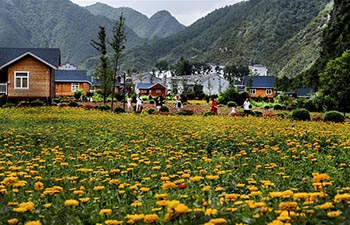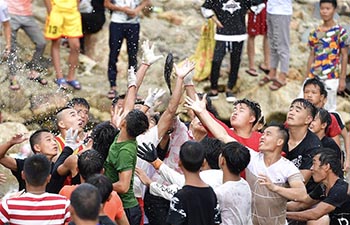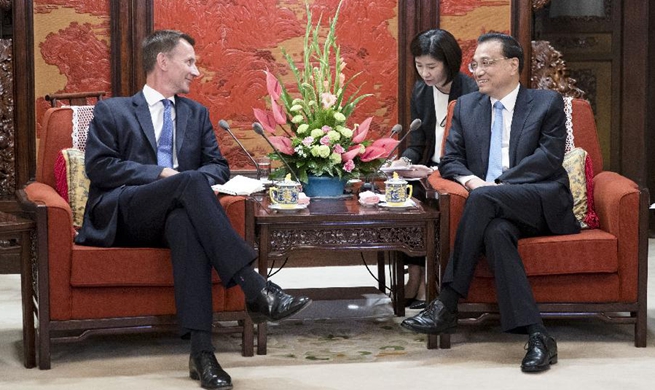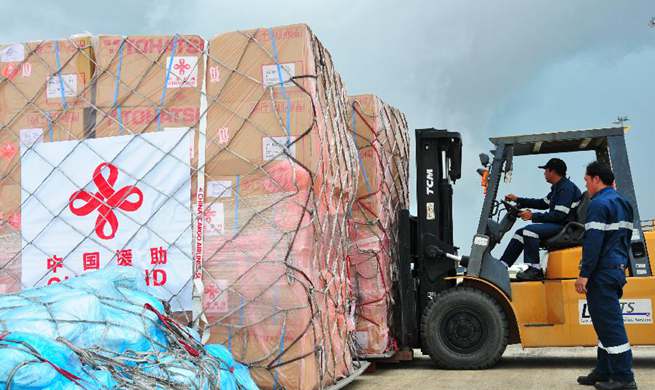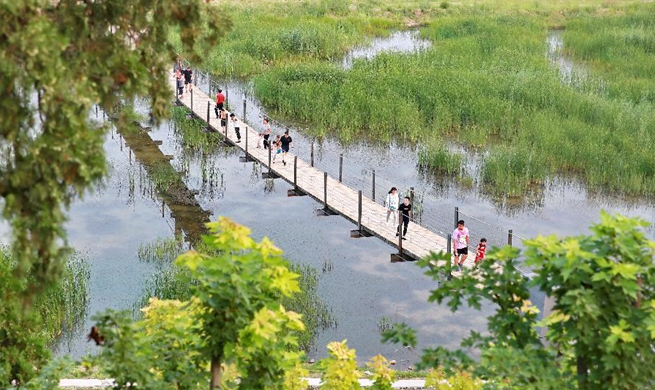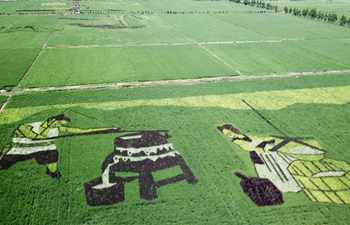BASRA, Iraq, July 31 (Xinhua) -- Dozens of demonstrators on Tuesday rallied near an oil field and in front of the local government in Iraq's southern province of Basra in protest of lack of jobs and basic services.
In the morning, dozens of protesters gathered on a road leading to West Qurna-1 oil field in the north of the city of Basra, some 550 km south of Iraq's capital Baghdad, while the security forces opened fire in the air to disperse the protesters, a local police source told Xinhua on condition of anonymity.
At least two demonstrators were injured in the stampede, and two others arrested by the troops, the source said.
Meanwhile, dozens of other protesters rallied at the entrance to the provincial council complex in downtown Basra and pitched a large sit-in tent, before the security forces and riot police intervened and lifted the tent.
The demonstrators demanded better basic services, including electricity, drinking water, health-care services and jobs, in addition to the accountability of the corrupt.
On Friday, Iraq's most revered Shiite cleric Grand Ayatollah Ali al-Sistani called for forming a new government as soon as possible and meeting the demands of the protesters about anti-corruption reforms, jobs and better basic services.
Protests have lasted about three weeks in a row in Baghdad and several cities in southern and central Iraq, despite a series of measures taken by Iraqi Prime Minister Haider al-Abadi aimed at quelling the street fury.
The measures included allocating 3.5 trillion Iraqi dinars (2.9 billion U.S. dollars) to launch several major projects on public services, such as electricity and water facilities, and providing thousands of jobs in government institutions.
Meanwhile, Abadi, also the commander-in-chief of the Iraqi forces, issued an order of high alert for the security forces in the central and southern provinces in response to the protests.
The demonstrators accused the influential political parties of being behind the widespread corruption that led to high rates of unemployment and failure in rehabilitation of the country's electricity, water and other basic services.





